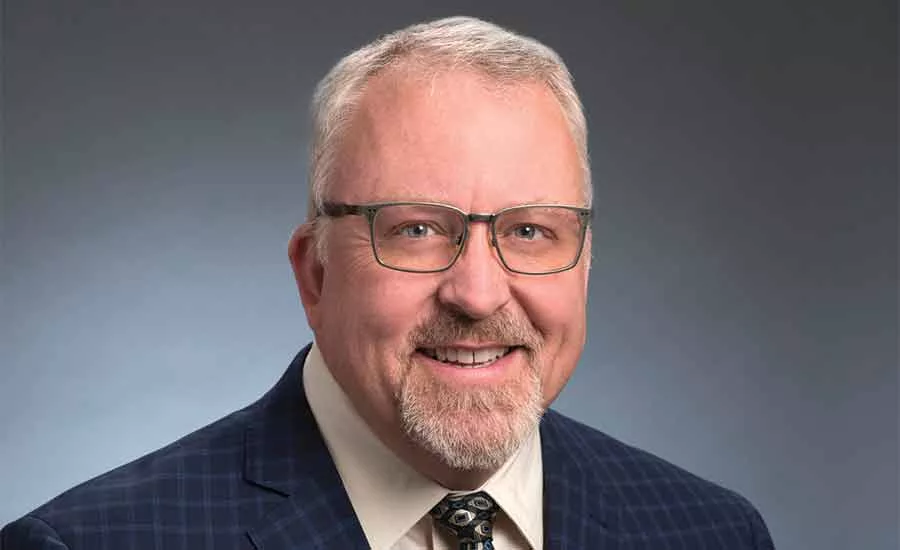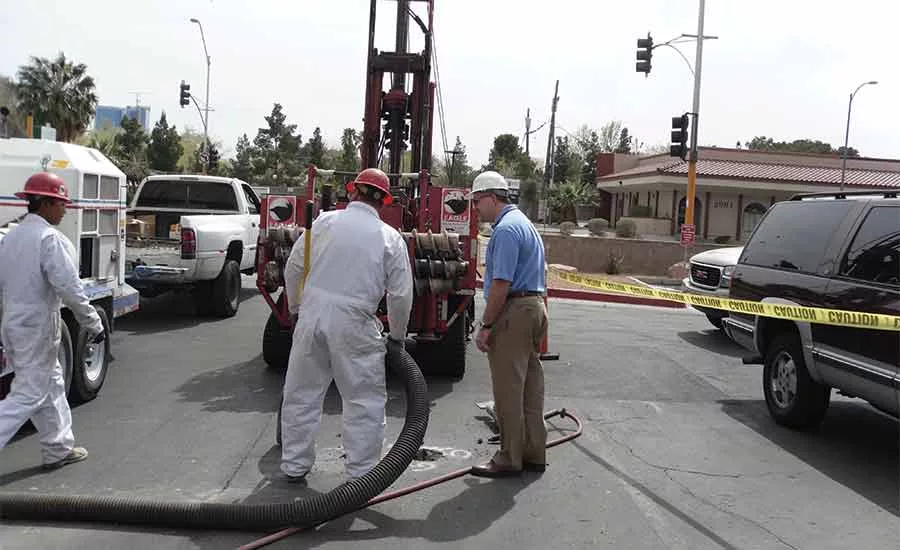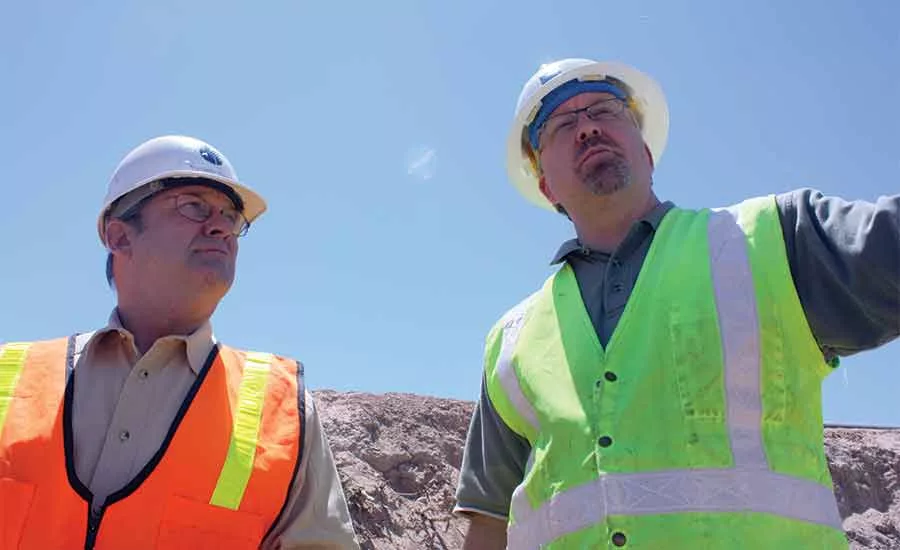You Know the Drill: Drilling Business Finds Value in Quality

Greg DeSart, PE, CEM, started his businesses in 1992.
Source: Eagle Drilling Services photos


DeSart , right, meets with Gerry Hester of the Southern Nevada Water Authority (SNWA), one of the company’s customers.
The age-old phrase of “quality over quantity” stands true for many professions, including drillers. It can apply to employees, jobs, pieces of equipment, budgets, etc.
As an owner of a company, it’s critical to make sure that a high level of quality is being met in all those avenues of a business. Greg DeSart, PE, CEM, owner of Eagle Drilling Services LLC and its sister company, Geotechnical & Environmental Services Inc. (GES), in Las Vegas, does just that.
DeSart, a licensed professional engineer and certified environmental manager from Nevada, received his bachelor’s degree in geological engineering from the University of Nevada, Reno, in 1987. After graduation, he worked as the geotechnical manager for Summit Engineering Corporation before opening his own businesses in 1992.
Eagle Drilling Services takes pride in providing services for a number of different industries, making quality even more of a priority. With five locally-based drilling rigs, Eagle offers hollow-stemmed auger, sonic, air and mud rotary drilling in limited-access areas. Along with monitoring and remediation well installation, they also handle environmental drilling, aquifer characterization drilling, geotechnical drilling, and the installation/abandonment of small-diameter groundwater wells — just to name a few.
When offering such a large variety of services, training of employees is key. DeSart makes sure that he has quality drillers that are licensed, MSHA and IGSHPA certified, and utilize safe dig utility locating. They also complete the OSHA 40-hour personnel training for hazardous sites.
But DeSart’s search for quality doesn’t stop there. He holds himself to that high standard as well. Not only does he provide administrative and technical support for all company operations and large projects, but he also assumes the role of making sure that high quality standards are followed with respect to technical performance, project schedules and budgets. He also leads the company’s risk management efforts and is involved in all contract negotiations.
Q. What does a typical workday involve?
A. On a typical day, I will meet with our field coordinator and lead driller to discuss the daily game plan and listen to how they are planning to resolve the challenges of the day. I also review proposals and check in with key clients to follow up on current projects and upcoming opportunities.
Q. What does it take to succeed in what you do?
A. It takes patience, persistence, and the ability to take a long-term view each day about what we need to be doing now in order to be successful a year or more down the road.
Q. What do you wish you knew when you started?
A. When I started, I did not fully appreciate how expensive it is to keep machinery properly maintained and repaired. I also did not fully appreciate the value of hiring people with not only a great work ethic, but also who actually enjoy working hard and working outdoors.
Q. What tool can you not imagine working without?
A. Even though we use equipment and people to drill borings and install wells, I could not imagine working in today’s environment without computers and the internet. We depend on these tools to stay in touch with our clients and keep track of where we are and where we are going.
Q. What’s the best piece of advice you’ve been given?
A. To never stop learning and never stop working to improve yourself and the people around you.
Q. How would you describe the present state of the industry?
A. I see the drilling industry as still a locally based industry. Local standards, geology, and even traditions still very much drive the drilling methods and techniques in different geographical regions. There are national and regional drilling firms, but you can’t drill from your computer. You will always need boots on the ground and people who understand the local drilling industry in order to be successful.
Looking for a reprint of this article?
From high-res PDFs to custom plaques, order your copy today!





